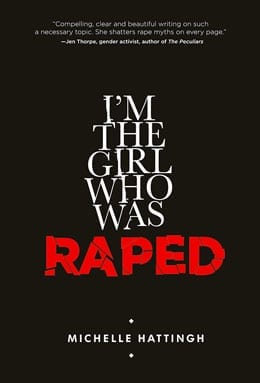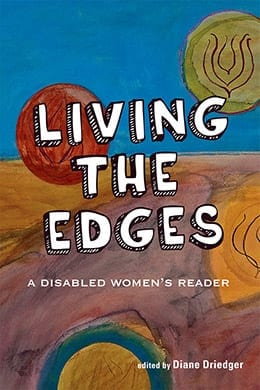Winner, IPPY Silver Medal
Finalist, 2016 International Book Awards
Women’s Issues
Through the braided narratives of three spirited characters, this novel bears witness to the infamous crime that metastasized uber-civilized Montreal, the “Montreal Massacre,” when on December 6, 1989, fourteen female engineering students were murdered in their classrooms.
The novel focuses on the lives of Deirdre, a first-year female engineering student at Aquitaine, who takes a Women’s Studies course as an elective and Marin, a student at Cantech who ponders what it means to be a female engineering student in such a chilly gendered climate. Everyone wants Marin at her party. Bohemian and beautiful, she is as passionate about constructing sets for theater and opera as she is about Trey, the one man she can finally trust. Deirdre is earnest and perceptive, but too naïve to know that frat boys can be dangerous, and she is drugged and raped at a party in an infamous men’s residence. Jenean, a francophone female journalist working in both languages, is feisty and urbane, a feminist who longs for peace between the sexes even as she ponders splitting from her live-in partner. She finds herself on the killer’s list of 19 women he would have liked to kill.
Set in that tragic historic moment, on two college campuses fraught with gendered antagonisms, this novel tells the story of the victims, following the imagined lives of these women as they happen headlong into the December 6 tragedy — a story disarmingly accurate that explores the profundity of deepest love and unimaginable loss. It follows them through a semester of college, from the crisp autumnal beginnings to that tragic winter. It does not end there. It then takes up with the families and survivors, examining the enduring effects of the massacre’s 24 minutes of inarticulate inhumanity.
“From the very first words of her prologue, Donna Decker draws you into the story. You are “there” before you are fully aware that her beautifully crafted novel is tackling profound issues. I believe that caring about a problem, emotion, without taking action to solve it, is irrelevant. Dancing in Red Shoes Will Kill You is the marriage of emotion and action. Decker’s novel underscores the myriad ways in which women’s lives are shaped — and too often destroyed —by the inequality that often leads to violence. Her book offers us the chance to delve deeper into conversations about gender inequity and violence against women that must be confronted to ultimately enrich the lives of us all – women and men.”
—Jody Williams, Nobel Peace Prize Laureate (1997), Chair, Nobel Women’s Initiative
“It took me ten years to understand that the story of the Polytechnique Massacre did not belong only to me but belonged to my society of feminists, of artists, of those who wanted to bear witness, to understand. My private story, however, belongs to me. And the Polytechnique massacre story is built on thousands of private stories of victims and their families, of all Polytechnique students, teachers, employees, and of all those whose life was transformed on that day. In Dancing In Red Shoes Will Kill You, Donna Decker re-imagines private stories to transcend December 6th and bring back to life the memory of my classmates.”
—Nathalie Provost, P. Eng., wounded on December 6th, 1989
“December 6, 1989 – a seemingly ordinary winter night – fourteen people are dead at l’École Polytechnique de l’Université de Montréal. Amongst these, my sister: Maud. Possibly, before this date, as important as it was, the phenomena of violence against women still seemed abstract, without face, without soul, of no importance. This ‘problem’ in our society is all too often summarized as a few editorial lines in a judiciary chronicle or revealed in dark photos of an anonymous body found in a squalid alley.… Until now – Donna Decker’s novel offers us the most comprehensive accounting to date of the crime that continues to engage the conscience of a country.”
—Sylvie Haviernick, sister of one of the fourteen victims of the Montreal Massacre
“This novel, based on the tragic events of December 6th 1989, is an important commemoration of victims of the Montreal Massacre. With convincing characters and meticulous reconstruction of details, Donna Decker shows us that the killer was not a lunatic, but that his actions were a direct consequence of the negative attitude towards women in society. This is a very important point, because once you proclaim someone like him a monster, it means he is an exception and therefore society is not to be blamed for his actions. On the other hand, if you make a reader aware of the atmosphere of hatred towards women, the whole society becomes responsible for his heinous crime. This book is also a strong condemnation of society’s negative attitudes towards women’s emancipation. I am grateful that Donna Decker, with this book, has made me aware that in modern times, in a civilized country, women were killed just because they were women.”
—Slavenka Drakulić, author of Holograms of Fear, Marble Skin, and S. A Novel About the Balkans
“Each December 6th since 1989, I gather with women working against male violence from Vancouver, Montreal, Moscow, London or Paris to acknowledge the importance of the Montreal Massacre but also to organize a better future for women. Still Donna Decker, in her novel Dancing in Red Shoes Will Kill You, through excellent journalistic research, reveals and conveys some social and political realities that I didn’t know. She links historical facts with the story-telling techniques of fiction to help us imagine how other men and women lived those days. Most importantly, she commits to women and to honesty about this specific group of women. Time, unearthed details, and her feminist sensibility holds out for us a perspective on the truth of those public and private events. Sparked by both the murders and the responses of our institutions, thousands of women took over Canadian streets protesting murderous male rage. After twenty-five years, extreme events of male violence worldwide again illuminate the rape culture that spawns them. Reading this book puts us in good company while we consider when and where to run for shelter from men’s violence against women and when and why to defy it.”
—Lee Lakeman, author of Obsession, with Intent
“This historical novel could not be more timely. Anchored in the events of the Montreal Massacre, the book imagines in rich and carefully researched detail the possible lives of the women engineers attacked by the shooter on December 6, 1989, and the lives of their friends, family members, and others affected by the shooting, including engineers, feminists, and even feminist engineers on other campuses. In doing so, the novel does a justice to the women the world lost on that day. In addition to humanizing those affected by the Montreal Massacre, the book expertly contextualizes the misogynist school shooting in the broader settings of sexism in engineering, violence against women on college campuses and gender-based violence more broadly. A must read for anyone seeking to make sense of the all too real connections between gender-based violence and barriers to advancement of women in stem fields.”
—Donna Riley, Professor, Department of Engineering Education, Virginia Polytechnic Institute and State University
“This book is immaculately researched, and the characters empathetically imagined. Given the recent media scrutiny of gendered crime on college campuses, it is a must read!”
—Kevin O’Hara, author of Last of the Donkey Pilgrims









inannaadmin –
Dancing in Red Shoes Will Kill You by Donna Decker
reviewed by Wendy Robbins
Herizons Magazine – Summer 2017 (Vol. 31, No.1)
Donna Decker’s novel Dancing in Red Shoes Will Kill You is a fictional account of the 1989 Montreal Massacre at Ecole Polytechnique. A gripping prologue places the murderer at the crime scene, seething because of his belief that “women were taking over the job market .” The narrative then backtracks for 24 chapters as it piles up details about three main characters. Two are engineering students . One character, Deirdre, is raped at a frat party at Aquitaine University, and Marin is one of the 14 women killed at CanTech polytechnique . A third, Jenean, is a journalist whose name is on the shooter’s hit list . Initially planned as non-fiction, the novel intensifies in chapter 25, when Decker recreates the rampage . In the first classroom, a character based on Marc Lepine orders 62 men to exit, leaving nine women behind as the massacre of “feminists” begins . One woman refutes the label in vain. In a second classroom, Marin, shot twice, runs for her life but is felled at the door, her bravery her legacy. The funeral for nine of the victims conducted by Catholic male priests, is poignantly described. Chapters 26 through 50 trace the national angst the massacre evoked, and the devastating impact it had on survivors and loved ones . Numerous psychological interpretations of the killer are referenced: He was a deranged loner; he had a traumatic childhood with a father who modelled violence against women; he sought calculated revenge against female students in the engineering school that had rejected him. Decker favours a broad social assessment: The 14 were targets because they challenged patriarchy by pursuing engineering careers, the troubling red shoes of the fairy tale “Dancing in Red Shoes Will Kill You.” The Montreal Massacre is part of history. But, as this book shows, uprooting rape culture and eliminating violence against women is a work in progress . Artistically, this debut novel has some flaws, but it reminds us that misogyny remains a hydraheaded monster on campus and off.
———
Dancing in Red Shoes Will Kill You by Donna Decker
reviewed by Natasha Sanders-Kay, SubTerrain Magazine – September 2016
(excerpt from the review)
This is an insightful, thoroughly researched, and incredibly important book. To remember the Montreal Massacre and its victims, to honour their humanity, to ground public understanding of such violence in feminist analysis—this couldn’t be more important twenty-seven years later. Between Ghomeshi, rape chants at UBC, continued harassment of women in male-dominated fields, over one in four Canadian women sexually assaulted, widespread male violence in families, and ongoing massacring of Indigenous women, it is clear that Canada needs books like this. Dancing in Red Shoes Will Kill You presents a powerful call for historical memory and present action, a call to see women as humans, deserving of equality, deserving of life.
———
‘Dancing in Red Shoes Will Kill You’: Book eyes Montreal Massacre
By Ann Connery Frantz, Correspondent, The Worcester Telegram & Gazette – August 16, 2016
http://worcestertelegram.ma.newsmemory.com/publink.php?shareid=290d00339
The killer hated women, despised them for occupying roles he aspired to but couldn’t attain. He was a loser—rejected by the military and by the engineering school he wanted to attend. So when he entered L’Ecole Polytechnic, an engineering school in Montreal,on Dec. 6, 1989, he wasdetermined to unleash his anger. Women would pay for usurping men.
He had a hit list and had planned the shootings for two months. He entered the school and shot every woman he encountered.
It’s truth, not fiction, and Donna Decker of Ashburnham tells the story of this mass killing through the characters and events of her novel, “Dancing in Red Shoes Will Kill You.”
The Montreal Massacre at L’Ecole Polytechnic took place in daylight, during classes. Thousands of students were there when Marc Lepine entered a classroom, ordered male students outside and began shooting the women left behind—acontentious act that left horror, blame and disbelief in its wake. Then he roamed the building, wounding and killing his victims.
Before he shot himself, he had killed 14 women. Fourteen other people were wounded, among them four men who were in his way as he picked off women. The killer was not aiming to kill them, however. “There were people who wanted to say these shootings weren’t just about women, but he said so. He left a note,” Decker said. The note contained names of noted women. The slaughteris infamous in Canadian history, but few Americans, beyond feminists, are aware of it.
Decker’s book explores the killings through the fictional lives of characters who become victims, grieving survivors, friends. She chose fiction as a way of bringing their lives more into focus emotionally.
A professor of English at Franklin Pierce University in Rindge, N.H., Decker noticed a brief reference to the killings while researching a dissertation on 19th century feminist novelists. “There were just four sentences,” she said, “but I could not stop thinking about it.” As the mother of three children, two of them daughters thinking about college, she sensed the loss to their families. “I thought, what if my daughters were in a classroom and that happened?”
Nine years of research followed, while raising her children, writing, teaching, and pursuing an advanced degree. She received funding to interview the victims’ families and friends from
Ms. magazine. “I was planning to write nonfiction, and I came across a call for people to apply to become a Ms. Foundation scholar. You had to pitch a story you wanted to write, so I pitched the Montreal Massacre, and I was accepted. Ms. knew about the Montreal Massacre, and said, you have to write it.”
“In 2009, I started to travel to Montreal. I had read everything I could get my hands on, but I wanted to get inside information. I met with some of the people who had been involved, a woman who was on the hit list, others who worked in the building at the time. It seemed I could not get enough information.”
Inanna Publications published the book in late May. Its title, taken from a poem by novelist Margaret Atwood, reflects the misogynistic climate women students faced then, and now, when they enter traditionally male domains. One of the book’s main characters, Marin, loves colorful clothing and sometimes wears red sneakers.
A subplot ties that climate to an anti-rape movement of the time, through a fictional rape at a campus party. Decker recreates the dangerous environment for women on campus—as true today as it was then. Her subplot portrays the situation women encounter in a culture fond of “roofies” and rape denial.
Deciding to tell the story as fiction was “heartwrenching,” she said. “I went back and forth.” At a writing retreat, prominent female writers advised her to tell the story as straight fact. “Barbara Victor was there—a prominent nonfiction writer—and Erica John. They were both insistent that it had to be nonfiction, and that was my plan. But once I landed on the ‘No means no’ (anti-rape) campaign, I thought, these two are so linked in my mind,’—but to do it as nonfiction would have been a feat. I wanted to make the narrative as compelling as possible.” She drew inspiration from the author of “S: A Novel about the Balkans,” which is a fictional account of women in wartime by Croatian writer Slavenka Drakulic. “It is utterly gripping and painful,” Decker said. “She said on NPR that she had to write fiction to get people to experience what it was like.” She saw what she could do: “That was the moment.”
Creating fictional characters was challenging. She based them partly on the families’ stories about the victims and partly on student lifestyles. The rapist, however, is complete fiction. “It was particularly hard when I had to create the character of Craig,” she said. “Being a professor, teaching women’s studies, I have had my fair share of women come to me with their situations, but I struggled in creating a character who is a rapist and, in all reality, doesn’t think he is. That was very difficult.”
A small writing group gave feedback. “They were dear friends willing to be honest. I would write some drafts, and they would say no, that’s not working; you’re writing like a professor, and not presenting him so that he would come across as a human. I wanted him to be as fully human as possible, not just a pure villain.” To portray his parents—the doting mother, the sarcastic, critical father.
Perhaps the most affecting impact of fictionalizing the story is the insight into how victims were pursuing their lives, some on the verge of accomplishment, others struggling with their emerging womanhood. Decker’s characters reflect the shock and horror of the killings.
In reality, impacts were deep. “One young man tried to help,” Decker said. “He ended up killing himself afterward, then his parents ended up killing themselves. He was their only child.”
“There were 2,500 people in the building and no one stopped (the killer). It is one of the topics that gets the most vigorous dialogue going. People on one end saying, why didn’t somebody tackle him? On the other end, these are just college students. The kids didn’t know what was happening.” Decker gets that. “I don’t believe there was malice, or any sort of callousness among the guys; I think they were in shock, but it’s pretty puzzling, especially for the parents of the girls; I honestly am still troubled by that.”
In the final chapter, Craig, who preys on students at college parties, prepares for another seduction. The scene injects a stark footnote on safety for women. “The women (in the book) are sandwiched between this killer and this young man who doesn’t ‘know’ what he’s doing. “The ending could have been more upbeat, but I guess my world view is not upbeat,” Decker said. “This kind of behavior is not over.”
Response to the book so far has been good, and she says she’s glad the story is being told. “I feel like it’s timely with all that’s going on. A lot of women have been sharing their stories with me, and some who are engineers have said ‘yes, you’ve captured that experience and it hasn’t changed.’” Since 1989, there have been many attacks, in many places. Some are specific to women, some not. Decker sees the misogynistic world as little improved from then—if at all. Gender bias remains a reality, she says. As well, “no” still isn’t respected in sexual encounters. “I don’t know if things can change, but there is more awareness, and younger women are uniting to fight rape and violence on campuses.”
While primarily an English professor, she also teaches women’s studies. She finds students relatively unaware of the world. “They don’t watch the news, and feminist issues don’t make the news. They don’t know about rape as a weapon of war. They don’t know a lot about domestic abuse. They tend to rely sort of on the way the culture generally talks about these things, so when they start to learn what’s actually happening … they get really angry. That for me, is a really positive moment in the course, and then we can talk about what you can do to change this, what kind of awareness will make a difference in the world.”
Decker’s second book is in the early stages. One of its main characters was raped in college and the incident has a lasting impact on her life. “So I guess I’m still in that arena,” she says.
———
The Mindful Reader: Novel explores true-life massacre and its impact
reviewed by Deb Baker
Union Leader – June 13, 2015
http://www.unionleader.com/apps/pbcs.dll/article?AID=/20150614/NEWHAMPSHIRE02/150619605/1012/NEWS0621&template=printart
Franklin Pierce University professor Donna Decker is known for her seminars, including one on school shootings. Now she’s written a novel, “Dancing In Red Shoes Will Kill You,” about the Dec. 6, 1989, massacre of 14 women students at École Polytechnique in Montreal.
In her author’s note, Decker makes clear that the book is fiction, and the characters are her own, even if they are based on real lives. She explains she’d always intended to write a nonfiction book about the massacre, but hearing author Slavenka Drakulic discuss her novel about rape victims of the Bosnian war changed her mind. Like Drakulic, Decker wanted “to get at the emotional truth” of the women who died; most of the news coverage at the time focused on the shooter.
Decker’s novel centers on one of the engineering students who died, a feminist reporter whose name appeared on the killer’s list of targets, and a student at another Montreal university who experiences date rape in her first semester at college. Decker draws readers into her character’s lives by fleshing out their family and friends, and by showing readers that they are people with foibles and faults as well as dreams of the lives ahead of them.
She paints a vivid portrait of the aftermath of the massacre, the sometimes venomous response to feminism’s role in the killer’s motive, the public angst as Canadians faced a reckoning over how their civil society could break down in such a heinous way, and the ongoing struggle for survivors, family members, and friends. Describing one victim’s sister returning from a private gathering held at the college, Decker writes, “It was short-lived, a tiny measure of forgetfulness to break up the expanse of pain that loomed ahead. Sybille was thankful, no matter the agony of remembering. Any ounce of relief from the continuous mourning was welcome.”
In writing the book, Decker did a great deal of research, and spoke with relatives of the massacre victims, which made it especially poignant to read the sections of the book that represented their perspectives. Decker writes well, but it seemed clear that fiction isn’t her usual genre. She tried to cover every angle, working in a subplot about a serial date rapist, for example, and another about Canadian feminists’ disagreement on how to challenge society. Her prose is a tad formal in places, and some of the dialogue felt a little strained.
But none of this detracts too much from the novel. “Dancing in Red Shoes Will Kill You” is a compelling read, and an important one. Decker’s novel is interesting and timely historical fiction – just a year ago, a shooter in southern California left a letter blaming women for his crime. It’s a tough read because of the subject matter, but it provides plenty for a book club to discuss.
Kerry Talbot –
This is one of the most engaging books I have read in a very long time. It’s page turning background on the characters and their backgrounds. It pulls together all the things wrong in our society that would lead up to something like this and how we look at it. I felt good about how the victims families moved on and the way they did it. It is a book that makes you think, cry, feel hope and understand how society feels about women and the why behind that as well. I highly recommend this book and introduced it to my book club. Right away we all started debates and discussions around what we read. This is a must read! I hope you purchase and enjoy as much as we did.